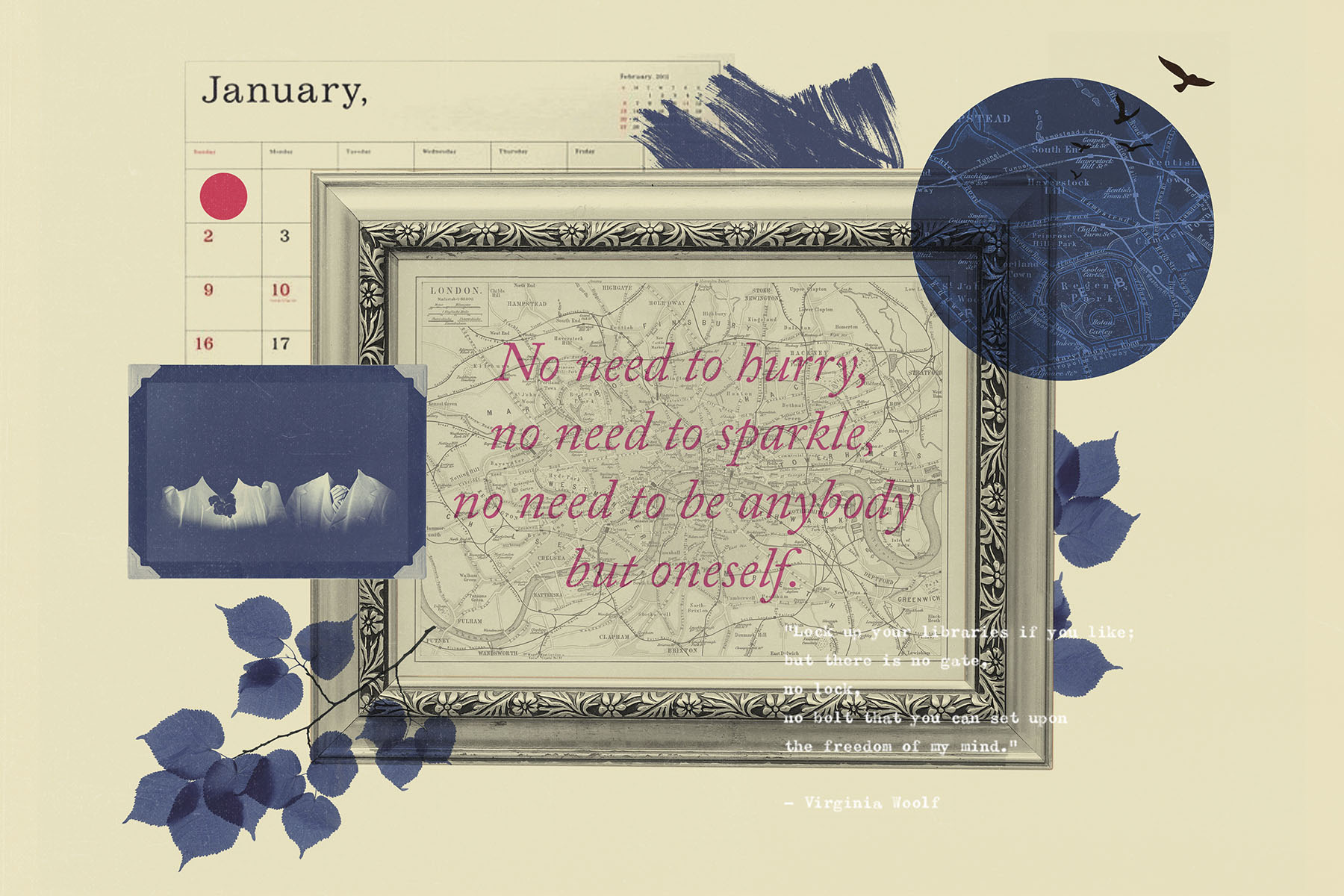
- Home |
- Search Results |
- ‘No need to sparkle’: why we should all take Virginia Woolf’s advice in 2021
When it came to New Year’s Resolutions, Virginia Woolf’s were 90 years prescient. On 2 January, 1931, she wrote in her diary:
Here are my resolutions for the next 3 months; the next lap of the year.
To have none. Not to be tied.
To be free & kindly with myself, not goading it to parties: to sit rather privately reading in the studio.
To make a good job of The Waves.
To stop irritation by the assurance that nothing is worth irritation [referring to Nelly].
Sometimes to read, sometimes not to read.
To go out yes – but stay at home in spite of being asked.
As for clothes, to buy good ones.
After a year when nothing really went to plan, resolutions have been muted in 2021. We've already spent the various lockdowns either cooking and eating better and nurturing a fitness regime, or giving up completely because, well, there’s been a global pandemic on.
A quiet Christmas away from our families, without all the usual parties, has also meant there is less to atone this January. And while 'Veganuary' claims to be enjoying its biggest year ever, that’s probably more to do with the ongoing climate crisis than anything else.
Instead, Woolf’s determination “Not to be tied. To be free & kindly with myself” feels wise and familiar after a tough 2020. As for “not goading it to parties”, there aren’t any to go to. Locked down for the next couple of months (at least), many of us will indeed “sit rather privately reading” for now.
'Woolf’s determination feels wise and familiar after a tough 2020'
Woolf’s is a pleasing list but it’s not what I turned to in the first dawn of 2021. Rather, I went to a short passage from A Room of One’s Own, her feminist polemic that was originally two lectures given at Girton College, Cambridge:
No need to hurry, no need to sparkle, no need to be anybody but oneself.
These words sit on my desk, quite without ceremony. Green ink on a ripped-out corner from a lined A4 notepad, they wear the damage of water spills and crumples. I wrote them out a while ago, when I felt I needed the reminder. At the beginning of a new year that doesn’t feel like it will get going for at least a season, Woolf’s words feel pertinent again.
This year of stasis has brought with it new, and peculiar, ambitions: should we be learning languages, writing novels, perfecting the rise of our sourdough loaves or renovating our homes? Social media trills as much with the success of others as it does the slumps we’ve been occupying. Even at a time when to make it through a day emotionally unscathed should be an achievement, it can be easy to believe we should be doing more.
'If lockdown has shown us anything, it’s that we should be – as Woolf says – 'kindly' with ourselves.'
If lockdown has shown us anything, it’s that we should be – as Woolf says – 'kindly' with ourselves. Self care is something authors have long grappled with. In 1972, Susan Sontag wrote “a New Year’s Prayer” in her diary that started: “Kindness, kindness, kindness.”
Forty years later, Ann Patchett wrote about the necessity of forgiveness in her literary memoir, This Is the Story of a Happy Marriage: "The key to finding any semblance of happiness," she concluded, could be summed up thus: “again and again throughout the course of my life I will forgive myself".
More recently, in her collection of essays written at the start of the pandemic, Intimations, Zadie Smith ends one chapter with the following advice for the reader experiencing an inevitable bad day: "[I]t might be worth allowing yourself the admission of the reality of suffering, if not for yourself, exactly, then in preparation for that next painful bout of video-conferencing."
Empathy, self-acceptance, going gently: all notions fiction can teach us to be better at. For me, along with Woolf's wisdom, this is captured best in a line issued in frustration and desperation by Paul D to Sethe in Toni Morrison’s Beloved: “You your best thing, Sethe. You are”. Right now, it is useful to remember that we are more than what we do, what we buy or what we post on the internet.
What did you think of this article? Let us know at editor@penguinrandomhouse.co.uk for a chance to appear in our reader’s letter page.
Image: Ryan MacEachern/Penguin